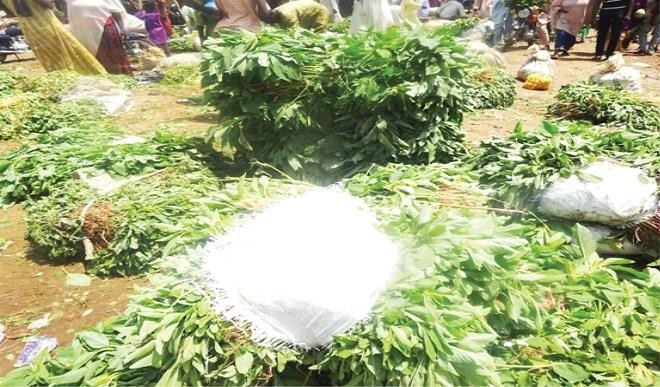Spinach price goes up as supply shrinks in Sokoto
Farmers in Sokoto have blamed the recent flood in the state for low spinach production. Consequently, there has been an escalation in the price of the commodity with consumers groaning over the prevailing situation. The vegetable, which is also referred to as ‘Green’ in Nigeria, has high consumption rate. It is one of the most […]


Farmers in Sokoto have blamed the recent flood in the state for low spinach production. Consequently, there has been an escalation in the price of the commodity with consumers groaning over the prevailing situation.
The vegetable, which is also referred to as ‘Green’ in Nigeria, has high consumption rate. It is one of the most common vegetables used in soup preparation.
Known as Aleho in Hausa, Spinach is very popular in the northern part of Nigeria.
In Sokoto, farmers grow the vegetable alongside other crops such as carrot, onion, garden eggs and lettuce.
It is always in high demand and much more during festive periods.
However, many consumers are complaining over the sharp climb in the price of the commodity in Sokoto.
They noted that the price of the vegetable has risen by over 100 per cent.
However, in a chat with Daily Trust, Chairman Spinach Sellers Association, Ramin Kara depot, Sokoto, Alhaji Bello Kane, explained: “The recent flood adversely affected the production of the vegetable which is brought from the Fadama land areas. The lands got too cold for the plant to grow while the planted ones turned reddish and later got destroyed hence the shortage of supply in the market.”
He said as a result, the price of an average bundle of spinach rose from N400 to N1,000. It recently went a bit down to N800.
Kane said the spinach is supplied to the depot from Fadama areas of Gyarabshi, Ruggar Liman Ungwar Sauro and Runji among others.
Some of the spinach farmers from these areas, who spoke on the situation said they suffered setback following the flood which according to them, had a negative impact on their production.
“With the recent flood, many of us had very low harvest, some of us nothing at all,” one of the farmers, Malam Aminu, stated.
However, they noted that spinach is an all-season plant and one in high demand.
Forty two-year-old Malam Musa Aliyu from Gyarabshi said in the village, spinach is the farmers’ favourite because it is always sold out.
“I do make a lot from spinach farming despite the fact that we procure our fertilizer and pesticides from the open market,” he stated.
He said from N5,000 investments, he does realize N11,000 or more.
Aliyu advised other farmers to grow more spinach due to high demand in the market so that the commodity can be available and at less price.
Another farmer, Bello Isa, 45, of Nupawa area of Sokoto, who has been in spinach business for 15 years, said though they suffered a set back following the recent flood, the business is lucrative because a farmer can harvest twice from one farmstead.
He explained: “We source seed which we spread on our prepared farmland and watering commences almost immediately at intervals. After the plants grow to a desired level, we apply fertilizer and pesticide for growth and protection from pest. When it is time for harvesting, the farmer can remove the bigger ones and allow the smaller ones to grow for the second harvest.”
According to Bello Isa, they procure a measure of seed at N1,300, a measure of fertiliser N1,000 and pesticide at N1,000.
“When I plant two measures of spinach seeds at N2,600, two measures of fertilizer at N2,000 and another N2, 000 worth of pesticide, I do realize over N10,000,” he stated.
He added that spinach requires adequate water, constant pruning and fertilizer for desirable growth.
The farmers called on the state government to assist them with loans and adequate fertilizer and pesticides so that they can supply adequate spinach in the market.
“We hardly get government’s subsidized fertilizer which makes us go to open market for the commodity,” he lamented.
